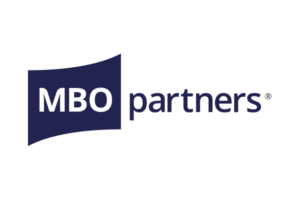What is the Paycheck Protection Program Flexibility Act and What Does it Mean for Independent Contractors and Small Business Owners?

Friday, the government signed into law the Paycheck Protection Program Flexibility Act to make it easier for small businesses and independent workers to gain relief under the Paycheck Protection Program, a key provision of the CARES Act for COVID-19 relief.
What is the Paycheck Protection Program Flexibility Act?
The Paycheck Protection Program Flexibility Act is a key piece of legislation that makes it easier for independent workers and small businesses to gain relief under the Paycheck Protection Program (PPP). This loan program provides forgivable loans to independents and small businesses impacted by the COVID-19 pandemic to be used for payroll and other qualifying expenses.
What does the Paycheck Protection Program Flexibility Act Mean for Independent Contractors and Small Businesses?
There are several key updates of the new PPP Flexibility act, including:
- Loan Applications Ongoing, Forgiveness Expands: Businesses may still apply for a Paycheck Protection Program loan via their business bank or another resource such as Paypal. This has not changed. The forgiveness period has been expanded from 8 weeks from the time of loan origination to 24 weeks with a cutoff date of December 31, 2020, whichever comes first. This means nearly every borrower can qualify for forgiveness – pending they meet the criteria below.
- Forgiveness Restrictions Eased: The new laws clarify that only 60 percent of forgivable expenses must be used on payroll (down from 75 percent) and clarifies that other forgivable costs could be used for items like rent, mortgage interest, and utilities.
- Extends Measurement of FTE Salary/Wage Period: Previously, businesses could not reduce salary or wages during the forgiveness period or the “forgivable amount” of the loan would be accordingly reduced. Now, wages must be restored between June 30 and December 31. This, plus the extension of the forgivable period, means that if borrowers spend all of their loan on payroll costs and other eligible expenses for the 24 weeks following loan origination, and keep salaries and wages the same or greater to their wages on February 15, the entire loan amount will be forgiven.
- Rehiring Exceptions: The SBA has released several re-hiring exceptions, including one for when the borrower can not find qualified employees for open positions, and a second for when the borrower cannot restore operations to pre-pandemic levels due to social distancing, sanitation, or customer safety requirements.
- Loan Maturity and Deferment Period Expanded: The maturity date on loans after the forgiveness period has increased from two years to five. The deferment period has been extended from six months to the date that the borrower’s forgiveness amount is determined.
- Interim Final Rules on Loan Forgiveness: Much remains to be seen about loan forgiveness for independent contractors specifically, but additional clarification has been provided for small businesses.
We will bring you further updates to this program as they become available.
Learn more about what benefits you may qualify for as a result of the CARES Act on our dedicated website, caresforindependents.com.
Categories
Subscribe to the Insights blog to get weekly insights on the next way of working
Join our marketplace to search for consulting projects with top companies
Learn more about MBO
Learn how to start, run and grow your business with expert insights from MBO Partners
Learn how to find, manage and retain top-tier independent talent for your independent workforce.
MBO Partners publishes influential reports, cited by government and other major media outlets.
Research and tools designed to uncover insights and develop groundbreaking solutions.


